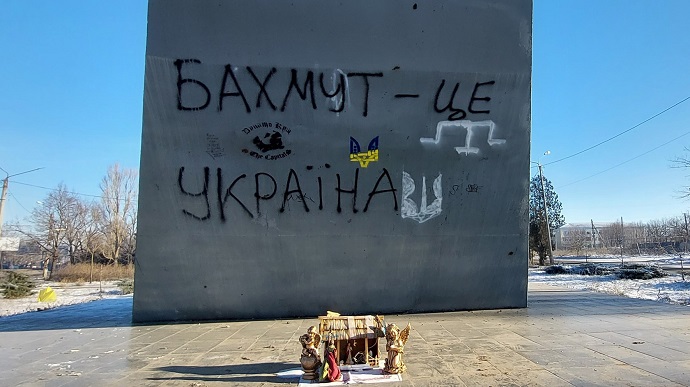Russian troops will not be able to encircle Bakhmut in near future – ISW

Analysts of the Institute for the Study of War (ISW), having analysed the situation, came to the conclusion that Russian troops will not be able to encircle Bakhmut in the near future. Source: ISW Details: Russian forces appear to have secured a sufficient positional advantage to conduct a turning movement against certain parts of Bakhmut but have not yet forced Ukrainian forces to withdraw and will likely not be able to encircle the city soon.
Russian forces made one limited confirmed advance near Bakhmut on 4 March.
As ISW reported on 3 March, Ukrainian forces are likely setting conditions for a controlled fighting withdrawal out of particularly difficult sectors of eastern Bakhmut, although it is not clear that Ukrainian commanders have decided to withdraw at this time. ISW states that Russian advances in Bakhmut have been slow and gradual and do not suggest that Russian forces will be able to encircle Bakhmut soon, much less that they will be able to take the city by frontal assaults. According to ISW's assessment, the Russians have, rather, managed to push close enough to critical ground lines of communication from the northeast to threaten Ukrainian withdrawal routes in a classical turning movement.
We have launched English Twitter!
The purpose of a turning movement is to force the enemy to abandon prepared defensive positions and is different from the aim of an encirclement, which is to trap and destroy enemy forces. The Russians may have intended to encircle Ukrainian forces in Bakhmut, but the Ukrainian command has signaled that it will likely withdraw rather than risk an encirclement. ISW assesses that Ukrainian forces are far more likely to withdraw than to become encircled and that the Ukrainians might still be able to hold their positions in Bakhmut if they choose to try.
Russian Defence Minister Sergei Shoigu met with Eastern Military District (EMD) Commander Colonel General Rustam Muradov in western Donetsk Oblast, likely to assess the extent of Russian losses around Vuhledar and the possibility of further offensives on this front. ISW recalls that Russian forces suffered catastrophic losses in a recent three-week offensive near Vuhledar, and severe personnel and equipment constraints are likely preventing Russian forces from making even marginal advances on this front. ISW report states that Shoigu's visit to Ukraine may suggest that the Russian MoD lacks confidence in Chief of the General Staff and theater commander of all Russian forces in Ukraine Army General Valery Gerasimov, who likely should have been the officer making this frontline visit or at least accompanying Shoigu.
Key ISW takeaways from 4 March:
- Russian forces appear to have secured a sufficient positional advantage to conduct a turning action against certain parts of Bakhmut but have not yet forced Ukrainian forces to withdraw and will not likely be able to encircle the city soon.
- The purpose of a turning movement is to force the enemy to abandon prepared defensive positions and is different from the aim of an encirclement, which is to trap and destroy enemy forces.
The Russians may have intended to encircle Ukrainian forces in Bakhmut, but the Ukrainian command has signaled that it will likely withdraw rather than risk an encirclement.
- The Chinese government is reportedly angry with the Kremlin over the publicization of arms sales discussions.
- Russian State Duma Defence Committee Head Andrey Kartapalov encouraged Russian companies to purchase their own air defence systems to defend against drones.
- The Wagner Group reportedly opened at least three new recruitment centres at Russian sports clubs between 2-4 March, possibly to augment Wagner's recruitment base after losing access to prisoner recruits.
- Russian forces conducted offensive actions along the Kupiansk-Svatove-Kreminna line.
- Russian forces continued efforts to encircle Bakhmut and conduct ground attacks along the Donetsk Oblast front line.
- Ukrainian sources continue to report that Russian forces are trying to set conditions for offensive operations in southern Ukraine.
- Chechen Republic Head Ramzan Kadyrov continues apparent efforts to increase Chechen influence within Russia through promoting Chechnya's Special Forces (SPETSNAZ) and youth policy efforts.
- Russian occupation administrations are strengthening law enforcement measures in occupied territories.
Journalists fight on their own frontline. Support Ukrainska Pravda or become our patron!